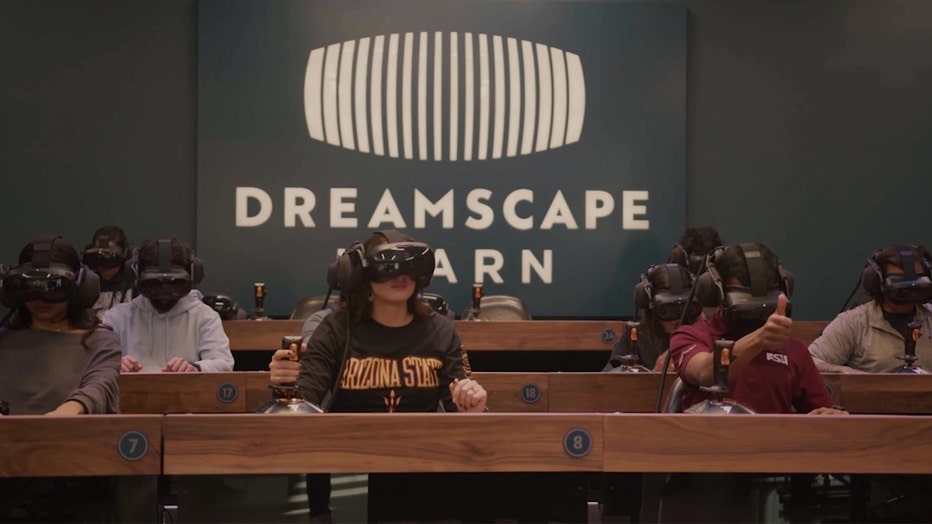ASU incorporates virtual reality program called Dreamscape Learn for biology students

Virtual reality helping ASU students learn biology
A program at Arizona State University is helping biology students learn through virtual reality, immersing them with hands-on experience before even stepping foot in the field. FOX 10's Lindsey Ragas has more.
TEMPE, Ariz. - Arizona State University is reimagining the way biology is taught to incoming freshman, setting them up for success.
They're using virtual reality to become biologists themselves, instead of listening to a lecture.
What is the Dreamscape Learn product?
What they're saying:
"Dreamscape Learn is a product that enables students to learn by becoming the thing that they want to train to be in a career," said Michael Angilletta, an Associate Dean for Learning Innovation at ASU.
The personalized experience gives ASU students the resources they need to succeed through Dreamscape Learn virtual reality.
"It's about jumping into an immersive environment and being fully engaged in a story," said executive director of the EdPlus Action Lab at ASU, Annie Hale.

Arizona State Photo
Watch FOX 10 Phoenix live:
What we know:
The way it works is simple: Introductory biology students take a course through Dreamscape Learn where they are taught biology in a fictional world.
Through VR storytelling, they have to make choices through quantitative analysis and different reasoning, fully engaging themselves in the assignment.
"Because it's so realistic when you're there and the story is so engrossing, they actually feel like the things that they're doing in VR are giving them hands-on skills, and of course, the stories are what emotionally drive students to want to learn," said Angilletta.
Virtual reality is helping students
Dig deeper:
ASU has been studying this product since 2022.
So far, immersive learning results have been positive, leading to better grades and students staying in their major.
"We look at the data over a two-year period," said Hale, adding they have studied a sample of 4,000 students.
"We have found that students are more likely to stay in their STEM Degree program. They are going to be successful in their majors, science majors. They're going to do better and they're more engaged with their curriculum in their coursework," said Hale.

